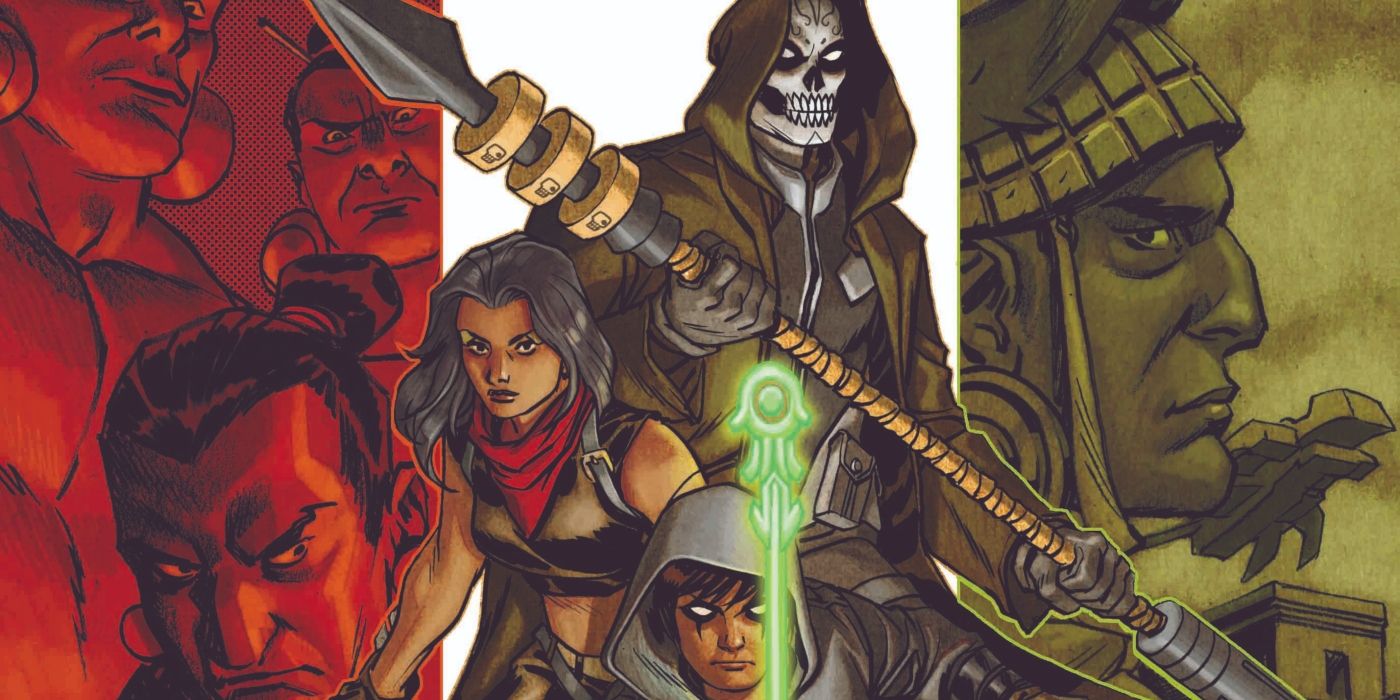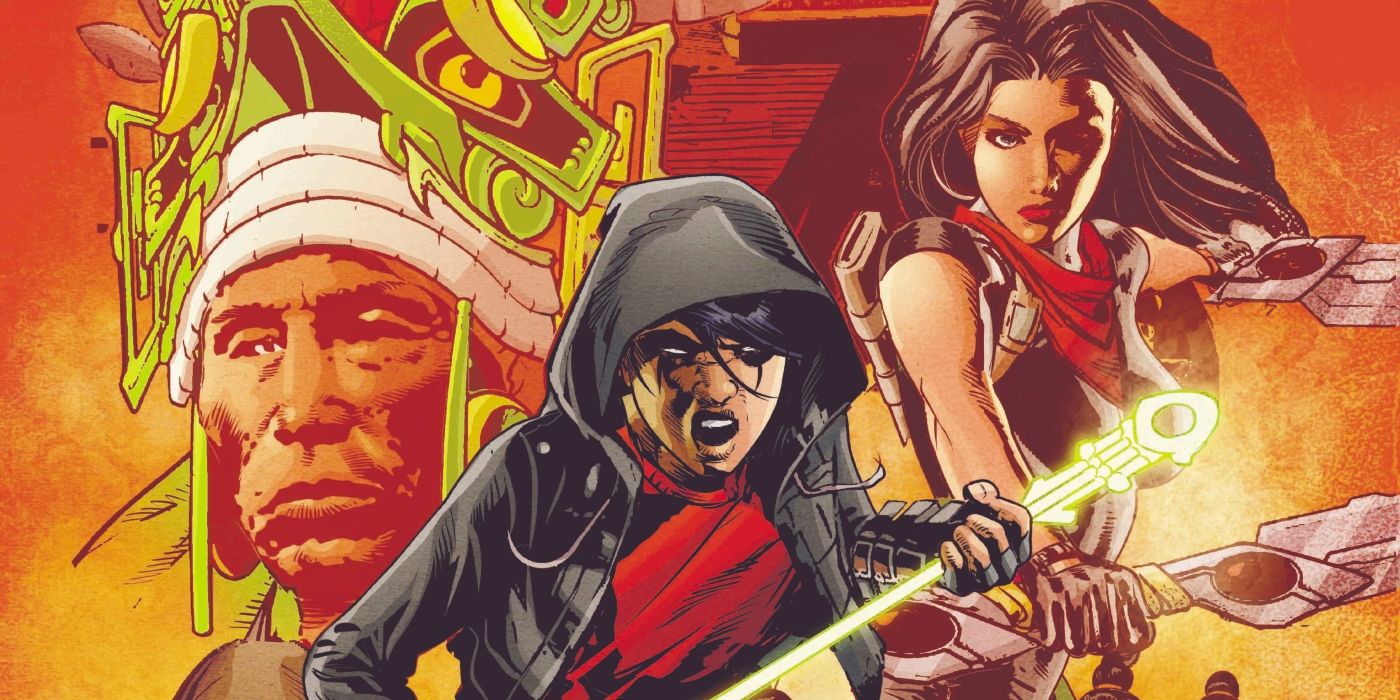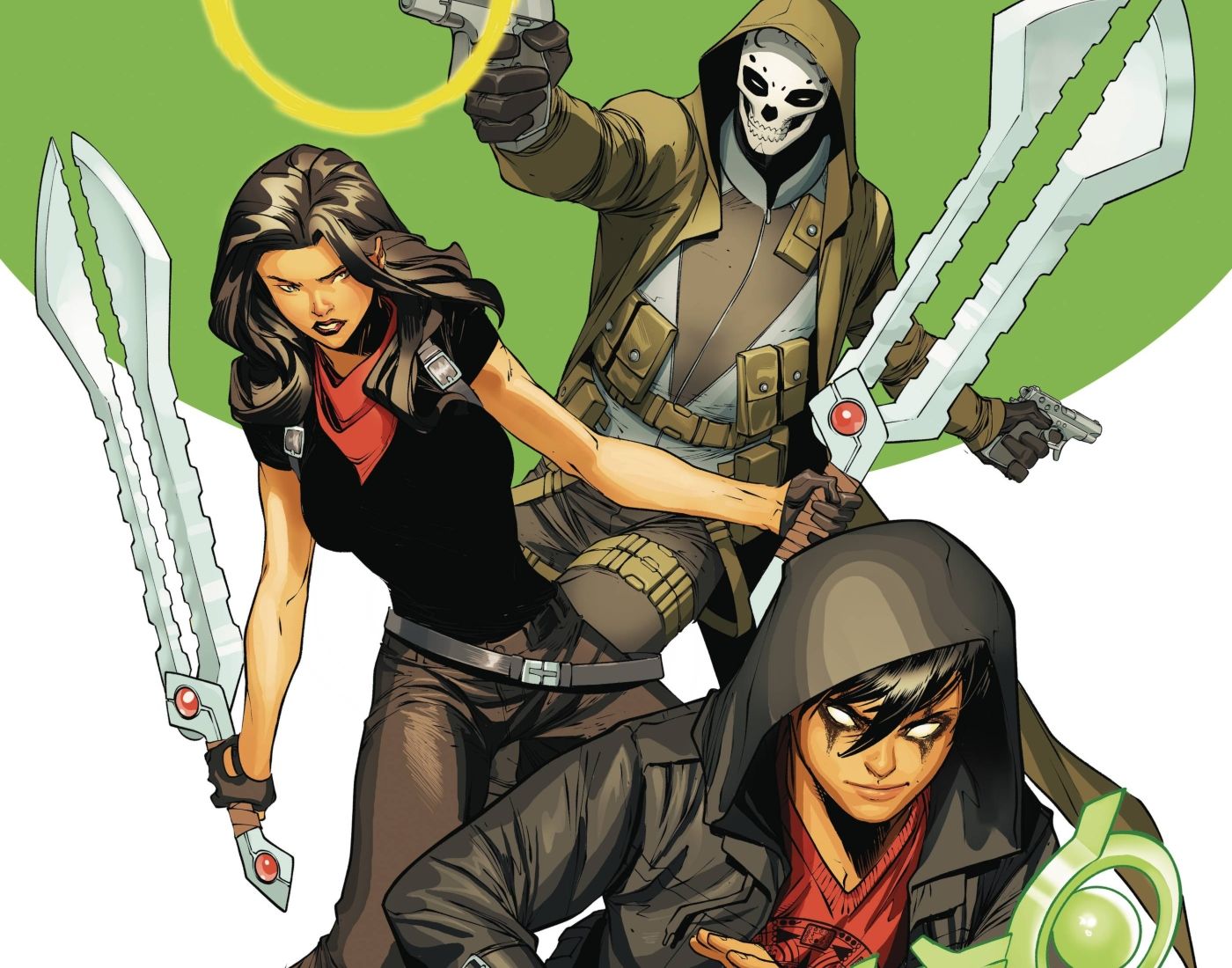Primos, written by The Daily Show veteran Al Madrigal and with artwork by Carlo Barberi (Deadpool), crafts a new vision for superheroes. AWA Studios' Primos injects Mayan history into a superhero story revolving around three distant cousins. Primos is an opportunity for the series creators to craft a story that speaks to the Mexican-American experience. In celebration of Primos #1 hitting comic stands, AWA Studios Chief Creative Officer and former Marvel Comics Editor-in-Chief Axel Alonso sat with CBR for an exclusive interview.
While discussing Primos, Alonso detailed what it was like to collaborate with Al Madrigal on Primos. Alonso reflected on his time in the comic industry and delved into how the series' "L.A. skate rat" hero gives the story a unique perspective from his perspective.
CBR: One of the ideas behind Primos, as explained by comic series creator Al Madrigal, was to create a genuine Latinx voice for a genre that honestly doesn't have a huge amount of authenticity. Why was it important to you to be a part of a series that brings these characters to the forefront?
Axel Alonso: When I was a little kid, my favorite superhero was the Black Panther because he had the coolest costume. He had no powers. When he peeled off his mask, I was disappointed he wasn't Mexican. He's still my favorite but I thought to myself, "Where's my Mexican superhero?" It turns out Al had the same reaction. Al and I met on a podcast many years ago, and we got talking and discovered a few things. One, we're both from San Francisco. Two, we went to the same high school. Three, we're both half-Mexican. Four, we both have Korean wives. We're the same guy, essentially. So we talked about this and then we talked about how there are no good Mexican superheroes.
There are cool black superheroes. There are cool Asian superheroes. But Hispanic superheroes are few and far between. As for Mexican superheroes, there are Blue Beetle and White Tiger. We talked about that and I said, "You got to create a Mexican superhero for me." Al was interested, but again, he didn't want to work for hire. He wanted to create something from scratch, which he would own. So when I started AWA, I called Al. I essentially said, "You've got to create something. Here. Let's do it now." We discussed how every Mexican has an uncle, who at one point in his life had one too many and says, "Guess what kid? We did it, man. We sent a spaceship out there. It's true. 'Chariot of the Gods' is true. We're up there. We came back. We're the ones in outer space." What if he was right?
The premise is two Mayan brothers create a spaceship. They go into outer space. They're up there for hundreds of years. They come back down. The problem is they don't come down in their time period. They come down in 2021. When they come down, they're disgusted by what they see. They see kids in cages on the border, the decimation of the culture. One goes mad. He wants revenge on the people that did this, starting with the Spaniards. The good brother says he wants to stop him and save the world. The world is worth saving. The good brother finds three cousins, he infuses them with superpowers. And he says, "Okay, kids. Save the world."
So they're basically the Mexican Guardians of the Galaxy. They don't like one another very much. They've got nothing in common except for their wisp of Mexican heritage. And then they have to get together and form a team. So Primos is all about these three cousins learning to control their powers and function as a team to save the world. So in the beginning, there are three individuals. At the end, they're a team. So it's kind of the Primos assemble arc.
Another unique element of Primos is it has a lot of the trappings of the superhero genre, but Ricky feels unique. He's not Peter Parker, figuring out his place in the world while being this secret genius. He gets his superpowers for the first time while at a party. Why was it important to highlight this sort of character?
[Al] wanted a very flawed point of view character. We wanted a character who was real. An L.A. skate rat, who got his powers at a party... All his reference points are video games and TV shows. On top of that, Ricky has to team up with two cousins, who are perfect. They'd been training their whole lives to be heroes. So he has to live up to them. We wanted a point-of-view character who would help us relate to the story because the ideas are so big. We needed a narrator to ground them. But we wanted to make sure we had a different type of point of view character, a fun protagonist but also one who was very authentically Mexican American. I never related it to Peter Parker or Tony Stark or Steve Rogers. But I relate to Ricky because Ricky, he's me in high school.
During an interview with Al, he described you as his "sherpa" into the world of comics. Considering your experience with the medium, how would you compare getting to work with someone new to comics compared to creators who've been primarily working in that field?
A good writer is a good writer. Al's a writer. He's written many screenplays. It's not his first rodeo writing a story. But by the same token, I had to work with him just to make sure he knows how to control time, how to control pages, what you can fit on a page, what you can't, what makes a compelling first issue. What do you need to do in the first issue? What do you need to land? So it was more just guiding him. Giving him goalposts and helping him get there. But again, this is his book. He wrote it. I brought him Carlo Barberi, the very talented artist who did Deadpool for me and other things at Marvel. It was very important to put a Mexican artist in the book for all these reasons. Carlo was able to ground everything and make sure it all worked.
What do you always want to see in a superhero story, and how did you see it brought to life in Primos?
Well, what I look for in a superhero story is the same thing I look for in any story: compelling characters whose forces of antagonism are compelling, and there's a journey for them. A compelling story is not just having the bad guy beating the shit you. Something more has to happen. There needs to be growth or change. You need to push past obstacles beyond just the bad guy and their strength. That's very important to me. It's the relatability of characters. So again, all of that goes into a good story and it goes into a good superhero story. Whereas at Marvel, my goal was to make sure that the characters themselves were seen as being more than just superheroes. There was love for their flaws as well their strengths.
You have to find what makes a good Thor story. What makes a good Hulk story? What makes a good Black Panther story? What are the themes you explore in a Captain America book? Captain America's a superhero dressed in red, white, and blue. If you don't confront what's going on in the country with him, who will you do it with? You have to create characters, and if you have something to say about the Mexican-American experience, you build on that. You build compelling characters that have to push path a huge problem in unique ways. That's the goal. I think we've accomplished it when all said and done.
How exciting is it for you to bring this series to life with AWA Studios?
It's a lot of fun because my career started at Vertigo where I worked on creator-owned books and mature readers' books. People largely wrote books where they looked at a blank sheet of paper and they created something from scratch. Or they had a character like John Constantine, where they had free rein to just go crazy. Marvel was different. You inherit iconic characters. You have a responsibility not to steer too far outside the lines, but at the same time, you have to bend them and do new stuff. I combined the experience of Vertigo and Marvel [with Primos]. This job allows me to do that. To essentially have the fun of creator-owned with a widescreen adventure of work for hire and Marvel.



